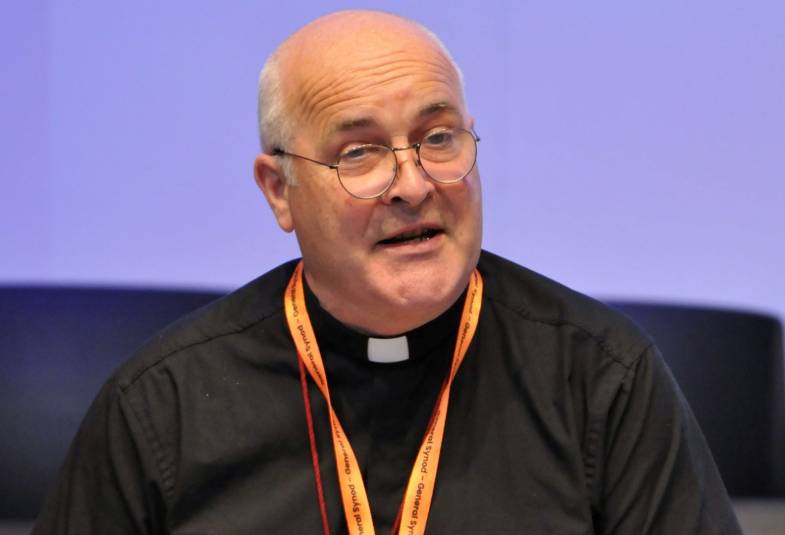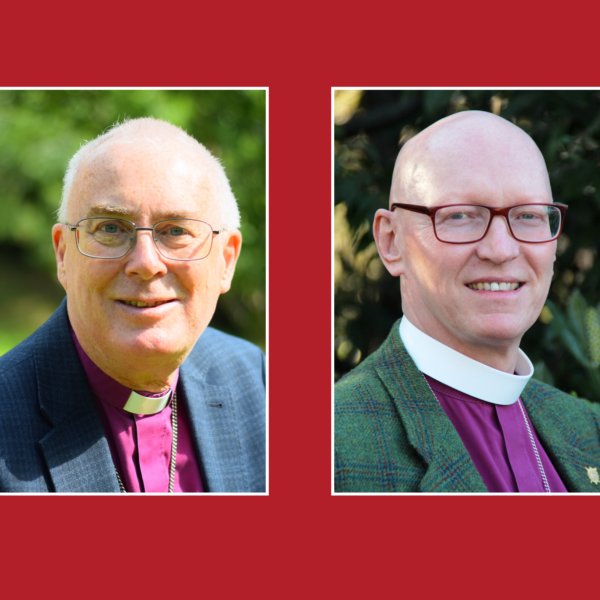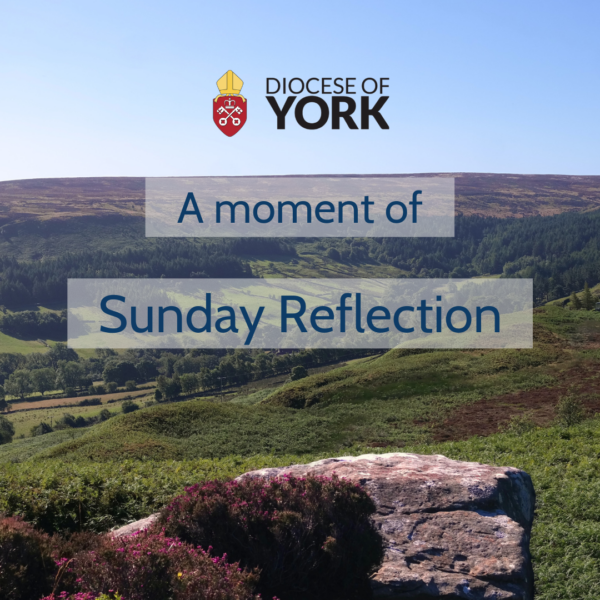Archbishop Stephen delivered the Presidential Address to the meeting of the General Synod in York on Friday 5th July. This follows in full.
During a lull in the conversation at a dinner party some years ago, one of the guests around the table posed the question to the rest of us: how many novels have you ever read twice?
Now this is a fascinating question; and as the other guests round the table thought so too, for the next half hour we all exchanged – as it turned out – our rather short lists of novels read twice. For me, once I’d edited out the Enid Blyton adventures that I read seven times over during school holidays (no daytime television, computer games or smart phones then) I could only think of one. For your interest, The End of the Affair by Graham Greene. I can thoroughly recommend it. It’s all about baptism.
Rather pompously – and somewhat provocatively – one of the guests at the dinner declared that he only wanted to read books that had been continuously in print for at least a century. This was his way of filtering out the ephemeral. I have not followed his advice. If you’re interested, it does however, this year, bring into play A Passage to India by E M Forster, When we were very Young by AA Milne and the love poems of Pablo Neruda. All published in 1924. All in print ever since – and now available for my friend to read.
But going home that evening, I did resolve to revisit some of the many novels I had read during my life, but never read again. And, again, for your interest, I started with my O-level set text reading list, and thoroughly enjoyed reconnecting with Lord of the Flies, To Kill a Mockingbird, Animal Farm and Brave New World – all well worth a second read.
Now, at this point, you may be wondering where this Presidential Address is going. It is simply this – and well known to those of us who follow Jesus Christ – stories shape us. Books we have read and re-read carve out a narrative and a pathway in our consciousness that guides and influences us in everything else. Supremely for us, this is, of course, the whole narrative arc of scripture, the stories of Jesus and the gospels in particular, the Bible, I note, being a book that has been continuously in print for many, many centuries and wonderfully, remarkably, faithfully written down by hand in those centuries before printing were possible. And back then, and still today, the living God wants to write this story in our hearts.
Here in the Diocese of York, we call our response to the Church of England’s Vision and Strategy and its invitation to be a Christ-centred and a Jesus Christ shaped Church, Living Christ’s story. We imagine and envisage our life of missionary discipleship to be as if, led by the Spirit, we are writing the next chapter in the Acts of the Apostles, the chapter for this bit of Yorkshire in this day and for the people and communities we serve. And when Jesus says at the end of St John’s Gospel, ‘As the Father sent me, I am sending you’ (John 20: 21); and when at the end of Matthew’s gospel, he says ‘Go into all the world and make disciples’ (Matthew 28: 19); and when St Paul says to the church in Corinth that they are a ‘letter from Christ… written by the Spirit of the living God’ (2 Cor. 3: 3), it is as if God is handing us the pen, entrusting to us his mission of love to the world and asking us, imploring us, to be his presence in the world. And of course, the foundation and the inspiration for this is the living word of God that bursts forth from the pages of scripture and lodges in our hearts and minds, changing them and shaping them so that we, indeed, become that love letter from God. But for this address, knowing that it is scripture, but also the way that scripture shapes and is shaping the lives of so many others who then become these love letters from God, there are two other books I want to mention as well.
When I first went to see my parish priest, Fr Ernie Stroud, one time member of this Synod, and spoke with him, aged about 20, about a possible vocation to the priesthood, he gave me two books to read. First Iremonger’s Life of William Temple; and second Kenneth Ingram’s biography of the slum priest, Basil Jellicoe.
I read these books when I was about 20 years old and they have made a mark on my life and groove in my ministry that has never gone away, that has laid down tracks upon which I believe I am still seeking to live and minister today.
William Temple gave me – and I believe still gives to the Church – a profound vision of how Christian Faith shapes and orders society; and since we are gathering the day after a General Election, it is especially relevant for us not only to pray for our new Prime Minister and government, but also to think afresh how Christian Faith and Christian values can shape and order the world.
In a letter that was sent a few weeks ago to Faith Leaders from the now Prime Minister, Sir Keir Starmer, it is clear that he sees and wants to understand more about the impact people of faith have on communities today. Let’s be clear, we know that politicians of all parties admire and covet the values that underpin our faith – during the cost of living crisis that still rocks so many of our poorest communities, during the Covid pandemic, and by our continued commitment to social justice our values mean that it is our instinct to put the needs of others before our own. But this is where we may need to be a bit more bold. We need to say that these values that we hold dear, these values that shape our life and witness, they do not exist in a vacuum. They come from and are shaped by beliefs and practices; what God has done for us in Jesus Christ, and what we do in response, the daily reading of scripture, the life of prayer and worship, the iron rations of the sacramental life. Then these values then become real and become the lived outworking of a Christian life. The very best advertisement for the Gospel.
And Basil Jellicoe, a parish priest ministering around the same time as William Temple, served in some of the most difficult and deprived communities of London around Somers Town and Kings Cross.
William Temple articulated a Christian vision and a Christian narrative for the world, one which shaped what we came to know as the post war consensus and the beginnings of a welfare state and a vision which I pray will be rekindled and reworked in our own day.
Basil Jellico showed something of what this vision looks like in practice, forming a housing association, helping clear slums, raising money and raising awareness and even opening a Christian pub, The Anchor, in his parish (fresh expressions of church aren’t a new thing).
Here in this Synod, and following the publication of the Housing Commission report, Coming Home, we have also been engaged with the massive challenges that face our society today, not least how to provide decent housing. As Pray our Part has helpfully reminded us, home is security and shelter, but it is also belonging and worth.
Other huge challenges face our new government, the huge challenges that face our nation and our world, of which we in the Church of England stand ready to help because the scriptures that shape us demand it.
I was recently in New York – actually part of a very enjoyable old York/New York schmooze fest to celebrate our close ties as two great cities – but some of the most interesting and challenging bits of the visit were the meetings I had with the Jesuit community about how they are facing up to their own shameful associations with transatlantic chattel slavery and also with the Episcopalian Church doing similar work; and I had a very powerful and moving meeting with the UN Deputy Secretary who spoke about the need of shared values as a way of countering extremism and populism and of the growing recognition within the UN of the importance and the place of faith in ensuring that there is a narrative for the world which is about our common humanity, our respect for the earth and all people in it, and of how developing this narrative, this story, and confronting hateful extremism, needs the active voice of healthy communities of faith.
General Synod, in our witness and service to the nation as the established Church of this land, and in order to fulfil our vision to be the church for everyone everywhere, and in a new beginning for our nation with a new government, we need the theological and social vision of William Temple; we need parish priests, healthy parishes, congregations and lay ministers like Basil Jellicoe, knowing that what shaped them can also shape us, the grooves and tracks of godly living that we find in God’s word.
It is our responsibility to shape, secure and articulate this vision, to rise above the issues that separate us too easily, and see that even in the developing narrative around LLF there is a way that can enable us to live together, and this could be a sign of peace in a too easily divided world.
As a new government forms, let us be bold in presenting the Christian narrative for human well-being, a narrative that is rooted in Christ and makes no sense without him; let us pray for our King and government and our new Prime Minister.
And mindful that we are just about to discuss an item on trust and knowing that sometimes in this chamber it appears to be in short supply, I note that one of the ways we build trust is by choosing trust. And that one of the ways we build trust is not by the words we say, but by our deeds and actions and indeed by the courtesy with which we deal with one another. And one of the best ways of doing this is that we put our energies into making common cause together in the service of the gospel. This is what Basil Jellicoe did. His was a very, very distinctive ministry. But he succeeded in gathering people to his cause, not because they all agreed with him, particularly not with some of his more distinctive and flamboyant liturgical practices (though I personally cannot see why this should be) but because they trusted his motives and because he worked with purpose for the sake of the gospel, never just for himself or for his bit of the Church.
William Temple famously said, ‘I believe in the holy Catholic Church, and sincerely regret that it does not presently exist.’ He knew that the Church God longs us to be transcends our current divides and disagreements and requires a greater trust in God and in each other.
The local Baptist minister in Somers Town noted that Fr Jellico, ‘wears a dress… and expresses his worship by forms we can’t all agree with… but there is no mistaking the mission and purpose of its wearer’. And he particularly noted how, as with Jesus, the little children came to him.
The local Warden of the Jewish hostel in the parish described his ministry as ‘like a sweet refreshing breeze on a hot, sultry summer’s day.’ He said that it was this Christian priest who gave him a ‘refreshing energy… inspired him with hope… filled him with a splendid discontent…’ ‘No one could remain satisfied under his influence’, he wrote.
So, I have read quite a few novels twice now. And I have turned to these two books about these two great heroes of the faith many times over. And if you scanned my bookshelves to see which books were the most dog-eared and scribbled in by much use you would also find Mother Julian’s Revelations of Divine Love, turned to again and again for her absolute insistence that love is the meaning of the gospel, and William Temple again: his Readings in St John’s Gospel.
I’m not sure which I’d take to my desert island if Lauren Laverne ever got me in her studio, though I note that our new Prime Minister opted for an Atlas when he was on the show. Alongside the detailed guide to life that is the Bible, I would probably go for Mother Julian. But I’m also profoundly humbled to be the current occupant of the place where William Temple once ministered. And with this Synod, I want to do all that I can to support the Church of England in its purpose to be the church for everyone and to serve every community. I am immensely grateful for the work that is done Sunday by Sunday, week by week, year by year in the parishes and chaplaincies of the Church of England and in all our new worshipping communities.
And noting that the Church of England grew for the first time in a long time last year, I rejoice that our resolve to be a Christ centred church of missionary disciples which is younger and more diverse and where every flower is encouraged to bloom, is bearing fruit. I also wonder whether alongside that alignment of vision, strategy and resourcing that is beginning to make a difference, something else may be going on in our society that is contributing to these signs of growth, namely that because Covid brought us face to face with our mortality, and because climate change makes the future so much more frightening, perhaps as a society we are all just a bit more open to the reality of God, the possibility of God, our great need of God, and the hopeful story of God that is given us in Jesus Christ.
In all this I soldier on. Neither foolishly optimistic nor complacent, but I am deeply thankful that more people knew Christ through the Church of England last year, and deeply hopeful because what inspires me most about William Temple, Basil Jellicoe and Mother Julian – and so many others, often the newest Christians I meet and confirm who refresh the Christian story in me with their fresh hopes and new perspectives – is the way their lives were so completely centred on Jesus; that they used their gifts in the circumstances in which they’d been called to make a difference. This is why even in the struggles and challenges we face; we must be hopeful. We too can be the ones who can make a difference and to do this we are invited to love one another. To find ways forward that honour one another. Like those who have gone before us we should not look for any reward other than that knowing we have done our best to be faithful.
I think we can move forward as a Church and as a Synod if we live by this spirit. Now here’s a thing: William Temple was a loved and respected bishop on both sides of the Pennines – Lancashire and Yorkshire. And at his enthronement as Bishop of Manchester he said this –
‘I come with a burning desire; it is that in all our activities, sacred and secular, ecclesiastical and social, we should help each other to fix our eyes on Jesus, making him our only guide… Pray for me, I ask you, not chiefly that I may be wise and strong, or any other such thing, though for these things I need your prayers. But pray for me chiefly that I may never let go of the unseen hand of the Lord Jesus, and may live in daily fellowship with him.’
‘Stories’, wrote Terry Pratchett, ‘etch grooves deep enough for people to follow in the same way that water follows certain paths down the mountainside. And every time fresh actors tread the path of the story, the groove runs deeper.’
Sisters and brothers, in our Synod this weekend let us tread the path of the way of Jesus Christ.
Synod sits from 5th – 9th July. You can watch the livestream here:


